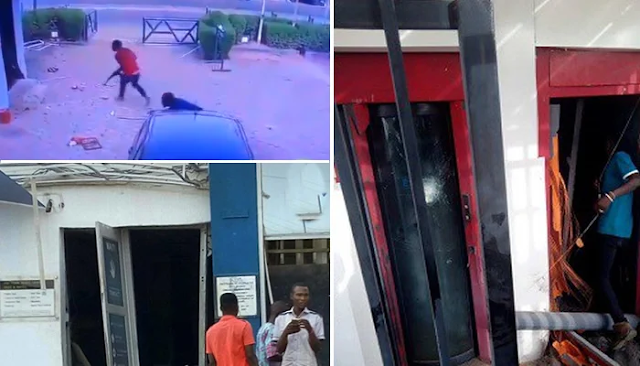Interpol's Operation Jackal III: Over 300 Arrested in Global Crackdown on West Africa's Black Axe Cybercrime Network
Rald News Media Report: Major Arrests and Crackdown on West Africa's Notorious Black Axe Network
In a sweeping international operation, the International Criminal Police Organization (Interpol) has arrested over 300 individuals connected to the feared West African criminal group, Black Axe, and its affiliates. The arrests were part of a coordinated effort called "Operation Jackal III," which spanned 21 countries from April to July 2024. This global mission targeted the cybercrime syndicate responsible for significant financial fraud and other serious crimes worldwide.
Interpol hailed the operation as a significant blow to the Nigerian crime network. However, they also warned that the Black Axe's global reach and technological sophistication make it a persistent threat. The operation resulted in the seizure of $3 million in illegal assets and the freezing of over 700 bank accounts.
Tomonobu Kaya, a senior official at Interpol’s Financial Crime and Anti-Corruption Centre, highlighted the role of financial technology and cryptocurrency in facilitating the operations of cybercriminal syndicates like Black Axe. These groups are known for their highly organized and structured approach, with early adoption of new technologies allowing them to move money illegally across borders with ease.
The Black Axe, a secretive criminal network, is involved in various illegal activities such as trafficking, prostitution, and violent crimes globally. However, cybercrime remains the group's most lucrative venture. Many of its members are university-educated, having been recruited during their academic years.
Previous Interpol reports have identified Black Axe and similar groups as responsible for the majority of cyber-enabled financial fraud worldwide, alongside other serious crimes. Since 2022, multiple "Jackal" operations have led to the arrest of numerous gang members and the seizure of their electronic devices.
One significant case occurred in Canada, where authorities uncovered a $5 billion money-laundering scheme linked to Black Axe in 2017. Addressing these sophisticated criminal groups requires advanced technological expertise and skilled personnel.
In response to these challenges, Interpol launched the Global Rapid Intervention of Payments system. This system allows authorities in its 196-member countries to freeze bank accounts swiftly. The mechanism was recently used to stop a $40 million scam targeting a Singaporean business in July 2024.
Kaya emphasized the importance of collecting data and understanding these syndicates' modus operandi to take effective action. Meanwhile, Dr. Oluwole Ojewale, the West Africa Regional Coordinator from the Institute for Security Studies, criticized the government's failure to curb the rise of criminal groups like Black Axe. He pointed out that politicians often empower these groups for their own gains, arming them to defraud innocent people and commit other crimes.
Ojewale argued that the focus should be on prevention rather than solely on operations against these criminal networks. He highlighted the need for proactive measures to stop the initiation of individuals into such groups.
In February 2024, President Bola Tinubu pledged increased support for the Economic and Financial Crimes Commission (EFCC) to strengthen its capacity in combating digital offenses. He also condemned the negative stereotyping of Nigeria as a hub of cybercrime.
The Nigerian Senate had previously raised concerns about the annual loss of $500 million to cybercrime and warned that without proper funding for the national cybersecurity program, the benefits of the digital economy could be undermined.
The origins of Interpol’s Jackal Operations trace back to Ireland. In 2020, the Garda National Economic Crime Bureau (GNECB) identified 1,000 individuals linked to Black Axe and arrested several members. This operation exposed a far-reaching network of criminal activity.
Michael Cryan, a detective superintendent at GNECB, noted that Ireland had seen a surge in money laundering linked to Black Axe. He described the sophisticated nature of these crimes, comparing them to modern-day bank robberies carried out with laptops rather than guns. Cryan estimated that €200 million had been stolen online in Ireland over the past five years, with crypto-assets worth over €1 million seized in one operation alone.
















































.jpg)